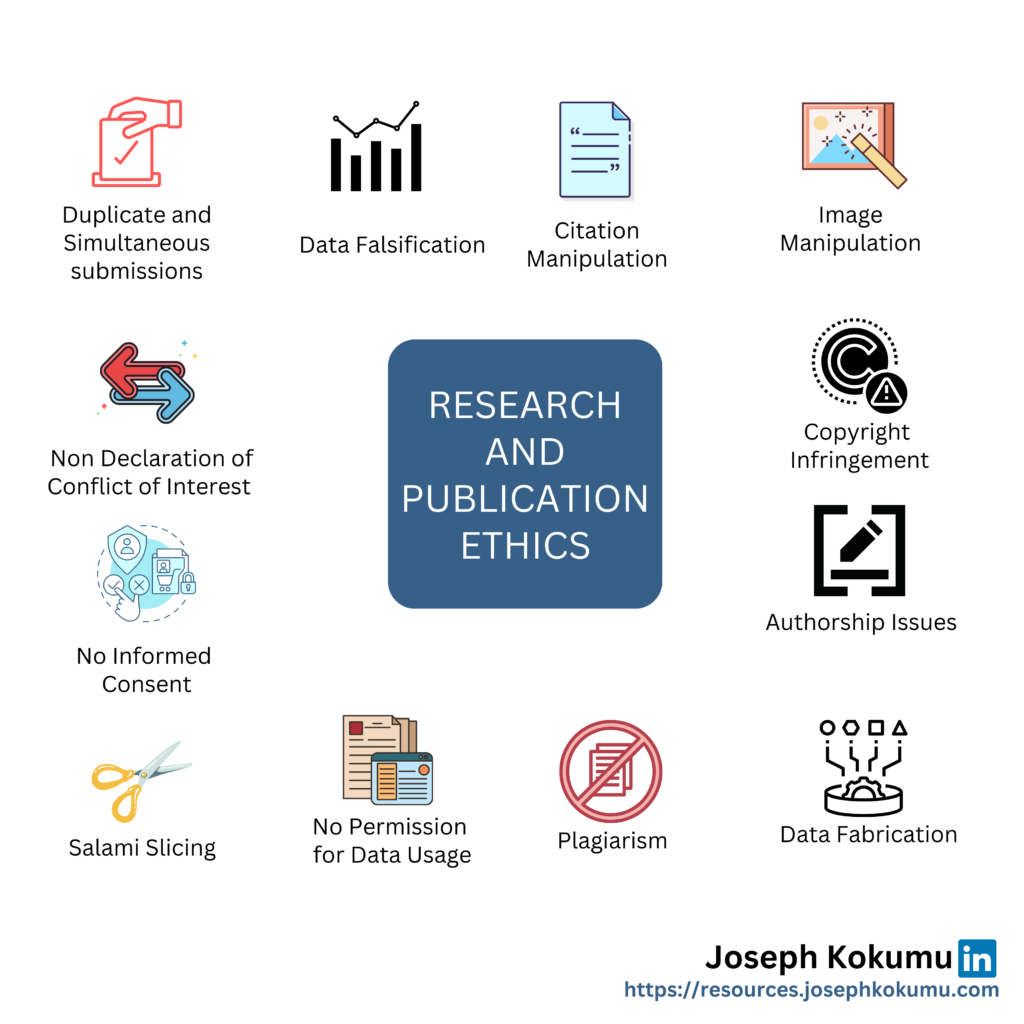Publication ethics is a crucial aspect of research that ensures the integrity, transparency, and credibility of scientific work. Researchers need to be aware of the following key aspects of publication ethics:
Authorship: Properly defining authorship is essential. All authors should have made substantial contributions to the research and should take responsibility for the work’s content. Honorary or ghost authorship is unethical.
Plagiarism: Researchers must avoid plagiarism by properly citing sources and giving credit to the original authors. Self-plagiarism, where one reuses their own work without appropriate citation, is also a concern.
Data Integrity: Ensure the accuracy of data presented in the research. Fabrication, falsification, or selective reporting of data is unethical and can damage the credibility of the work.
Conflicts of Interest: Disclose all potential conflicts of interest, including financial, personal, or institutional relationships that could influence the research or its interpretation.
Ethical Approval: If the research involves human subjects, animals, or other sensitive topics, obtaining proper ethical approval from an accredited institutional review board (IRB) or ethics committee is essential.
Informed Consent: When research involves human participants, proper informed consent procedures must be followed, ensuring that participants understand the nature of the research and its potential risks.
Duplicate Submission: Submitting the same research manuscript to multiple journals simultaneously is unethical. It wastes the time of editors and reviewers and can lead to conflicting publications.
Citation Manipulation: Cite other researchers’ work accurately and avoid excessive self-citation for the sole purpose of inflating one’s own impact.
Transparency: Be transparent about the research process, including methodology, data, and limitations. Openly share data and materials whenever possible.
Image and Figure Manipulation: Manipulating or falsifying images and figures in a way that misrepresents the data is unethical. Ensure that all visuals accurately represent the research.
Retraction and Corrections: If errors or misconduct are identified after publication, researchers should cooperate with the journal to issue corrections or retractions as needed.


